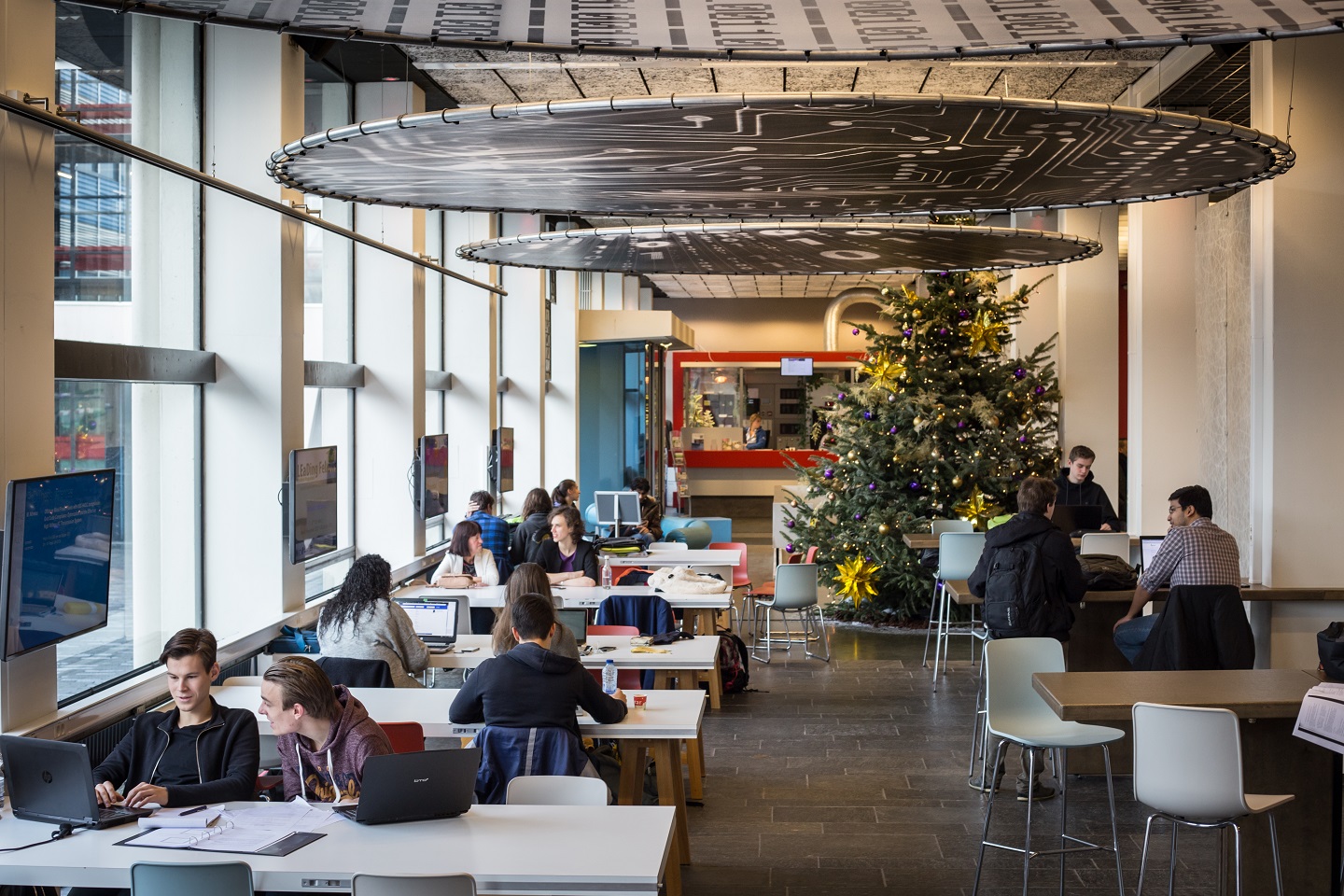The majority of students in almost ten percent of the degree programmes at Dutch universities and universities of applied sciences are international students. In five percent of these institutions, the international students constitute over three quarters of the student body.
TU Delft halted registration by students from outside Europe for its Computer Science course because of the rapid rise in the number of registrations (Photo: Thomas Zwart)
These are the findings of Nuffic, the Dutch organisation for internationalisation in education. As early as February, the number of international students again reached a record number both at research universities and at universities of applied sciences.
Of all the students in the Netherlands, 12.2 percent come from abroad, amounting to 122,000 students in total. Almost 90,000 of these are taking full degree programmes in the Netherlands, while the rest stay for shorter periods through exchange programmes such as Erasmus+. According to OECD figures, the Netherlands is sixth in the ranking of countries with the most international students, after New Zealand, the United Kingdom, Switzerland, Austria and Australia.
Research universities attract more international students than universities of applied sciences. Just under thirty percent of the newly registered university Master’s students come from abroad. This is twenty percent in Bachelor degree programmes. These percentages are 26.1 and 8.4 respectively at universities of applied sciences.
Degree programmes with a numerus fixus are less attractive to students from abroad
At university level, the economics courses attract most of the international students, followed by humanities and social sciences. Proportionately, the number of international students in the small-scale degree programmes in liberal arts and sciences is the highest.
The University of Maastricht leads the way in terms of internationalisation. The highest growth in the number of international students is in Groningen, Amsterdam and Rotterdam. Degree programmes with a numerus fixus are clearly less attractive to students from abroad: more than ninety-five percent of these degree programmes only have registered students from the Netherlands.
With 22,125 students, Germany is still the biggest supplier: almost 25 percent of all international students are German. Seven years ago, this figure was only forty percent. China, with 4,475 students, is in second place. About one in four international students comes from outside the European Economic Area. These international students come from 162 different countries. Currently the balance is starting to shift, with more students coming from other countries and fewer from Germany and China.
Not all degree programmes are happy with the continuing increasing numbers of international students. In February, TU Delft halted registration by students from outside Europe for its Computer Science course because of the rapid rise in the number of applications. Elsewhere too, criticism can be heard about the high numbers of international students, partly because English is becoming the medium of education in more and more degree programmes. Nuffic’s figures show that three out of four university Master’s degree programmes are now being taught entirely in English.
‘All students can benefit from a diverse international classroom’
Nuffic’s director, Freddy Weima, points out the advantages of international students in the Netherlands. “The knowledge, experience and networks that international students bring from their own countries help strengthen the quality of education in the Netherlands, and all students can benefit from a diverse ‘international classroom’.”
The Interstedelijk Studenten Overleg (ISO, the largest national student organisation in the Netherlands) also sees the opportunities that the internationalisation of higher education brings. At the same time, the student organisation points to some hurdles. ISO chair, Rhea van der Dong, explains: “Internationalisation can bring us a lot, but only if we do it well. Rather than internationalising very fast, universities should think about it carefully. Only then will students really benefit.”The Landelijke Studentenvakbond (LSVb, that advocates for students in the Netherlands) is also concerned. “Universities are doing all they can to attract as many international students as they can. We would like to call upon the universities to take time to think through their strategy.”
HOP, Steffi Weber
Do you have a question or comment about this article?
redactie@hogeronderwijspersbureau.nl


Comments are closed.